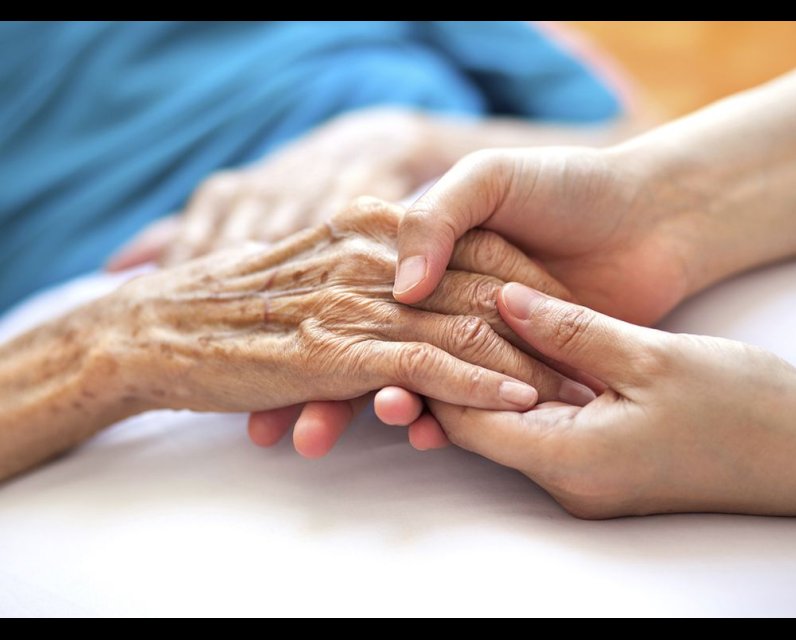Dementia patient gets MAID after family member 'brought forward' the request

A frail women in her late 80s with dementia received MAID after a family member “brought forward” a request for an assisted death, a new report reveals.
The woman’s life was ended after a MAID provider deemed the woman had given her final expressed consent to proceed, based on her ability to repeat a question and squeeze the provider’s hand.
The case is among half a dozen flagged in the latest report from the Office of the Ontario Chief Coroner’s MAID Death Review Committee. Together they’re raising questions around how MAID is being approved for people with dementia, including whether people are receiving MAID without proper assessments to determine if they have the capacity to consent to death.
“What really stuck out to me is that people with dementia are choosing MAID for feelings like loss of dignity, perceived burden, emotional distress and fear,” said family physician and committee member Dr. Ramona Coelho.
Palliative care can help people grappling with such existential suffering, she said. Yet the report found only 13.6 per cent of people with dementia who died by MAID in Ontario in 2023 and 2024 received palliative care, compared to 82.3 per cent of people who received MAID for other causes.
“If MAID is not to be the path of least resistance, but really the choice, then when people are scared and they need care, they should be accessing that care,” Coelho said.
Canadian author Robert Munsch revealed in a New York Times profile that he applied for MAID, or medical assistance in dying, after his diagnoses with dementia and Parkinson’s disease in 2021.
Munsch explained that, under Canadian law, recipients of MAID must be able to actively consent on the day of their death. “I have to pick the moment when I can still ask for it,” he said. If he waited too long, he added, he feared his wife becoming “stuck with me being a lump.”
According to the MAID death review committee’s newest report, Navigating MAID with Persons with Dementia, 103 assisted deaths were reported in Ontario in 2023 and 2024 where dementia was identified as the primary condition contributing to suffering. Those deaths represented about one per cent of all MAID deaths over the same period.
“MAID requests involving dementia require additional considerations for interpreting eligibility criteria, assessing capacity and ensuring informed consent,” the report reads.
“The reported suffering of persons with dementia was higher for experiences such as ‘loss of dignity,’ ‘being a perceived burden on family, friends or caregivers,’ ’emotional distress/anxiety/fear/existential suffering’ and ‘loss of independence’ compared to persons with other CODs (causes of death),” the committee said.
Persons with dementia, they noted, “less frequently reported suffering from ‘inadequate pain control.'”
Among the anonymized cases highlighted is that of Mrs. 6F, the woman in her late 80s diagnosed with moderately advanced dementia.
Nine months before accessing MAID, Mrs. 6F was admitted to hospital after falling several times at her retirement home. She needed help with most basic activities of daily living, according to the report, including supervision while eating. She had a tendency to overfill her spoon and choke.
“At one point during her admission, Mrs. 6F reportedly expressed a ‘wish to die’ to a family member,” the report reads. “This was communicated to her care team, who initiated a referral for MAID.”
“Her expression of a wish to die was interpreted by a family member as a potential request for MAID.”
After a discussion with a MAID provider, Mrs. 6F chose to move into long-term care, and decided not to pursue an assisted death.
However, four months after her transition to long-term care, “Mrs. 6F reportedly renewed her request for MAID” and the MAID process was navigated by a family member, the committee reported.
“At this point, Mrs. 6F was largely bedbound and experienced additional physical symptoms including dyspnea (shortness of breath) and pain.
“She also suffered from psychological and existential distress related to her increasing dependency and cognitive decline,” according to the report.
The MAID provider assessed her eligibility over a single meeting, and with a family member present.
In addition to her physical and functional decline, “the provider also noted that Mrs. 6F experienced ‘marked existential suffering’ and was ‘clear she did not want to continue to live as she (was).'”
There were communication challenges during the eligibility assessment. The provider said the process was “managed in a way that worked for her.” There was little documented details of her cognitive impairments like short-term memory loss, insight or judgement. Mrs. 6F tried to sign the consent form, but her signature was illegible. “A third-party signer, a member of the MAID provider’s clinical staff, was engaged,” according to the report.
MAID was scheduled for one week after two assessors determined Mrs. 6F met the eligibility criteria. “On the day of the provision, Mrs. 6F was reportedly overwhelmed by the presence of additional visitors,” the committee said. The extra visitors were asked to leave “to ensure a calm environment.
“Final express consent was determined based on Mrs. 6F’s ability to repeat the consent question and via squeezing the provider’s hand.”
While most committee members felt that Mrs. 6F “appeared to be able to communicate a choice (i.e. by agreeing or squeezing a hand)” others said communication via repeating a question “is not an indication of understanding or appreciating a healthcare decision,” particularly without supporting documentation of a person’s cognitive capabilities and decision-making.
Some members were also concerned about the reliance on a family member “to facilitate the MAID process, illustrating potential opportunity for undue influence,” according to the report.
Members “encouraged MAID practitioners to prioritize direct engagement with the person requesting MAID … and to document the requestor’s own words and reasoning wherever possible.”
Concerns were also raised that Mrs. 6F’s overwhelmed response to having so many people in her room the day MAID was provided potentially signalled “her lack of understanding of the circumstances of the MAID provision.”
In another case, a man who had been living with Alzheimer’s disease for about 10 years was approved for MAID while he was suffering from an abdominal infection and delirium. His caregiver couldn’t continue providing care for him because of health challenges, and he was facing being moved to long-term care within a week. He was approved for MAID after being assessed by two people on the same day.
Some committee members stressed that MAID requests should be deferred “during periods of medical instability,” like delirium, or “significant life transitions,” such as moving into long-term care.
The cases suggest “people are accepting very limited, and under the threshold, of what a normal capacity assessment would be, especially for this (dementia),” Coelho said.
But while some members said the threshold for determining capacity for MAID should be high, given the gravity of such a life-ending decision, others said it shouldn’t exceed the thresholds applied in other health-care circumstances.
National Post
Our website is the place for the latest breaking news, exclusive scoops, longreads and provocative commentary. Please bookmark nationalpost.com and sign up for our daily newsletter, Posted, here.



Comments
Be the first to comment